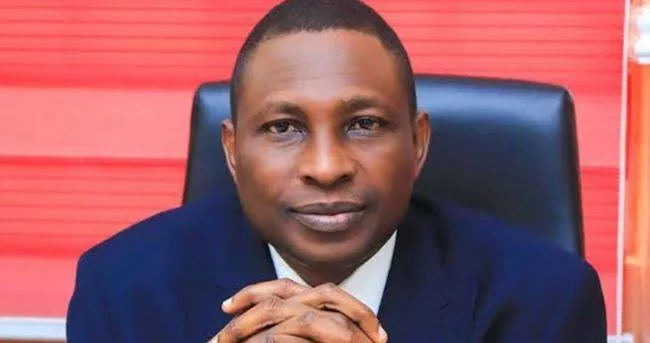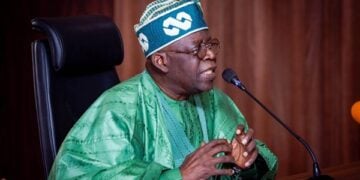Chairman of the Economic and Financial Crimes Commission (EFCC), Mr. Ola Olukoyede has declared his resolve to continue to build and sustain capacities of staff of the commission to be globally competitive and achieve best practices in their duties.
He disclosed this at the second director’s lecture, organised by the commission’s Public Affairs Directorate (PAD) for its officers at the headquarters and the 14 zonal commands of the EFCC.
Olukoyede, who was represented by the director, PAD, commander of the EFCC, Wilson Uwujaren stated that “ I am committed to the course of building the capacity of officers of the Commission and ensuring the sustenance of the culture of best practices for which the Commission is known. As communication officers of the EFCC, the director’s lecture is to help you improve on your capacity to deliver on the mandate of the commission as it relates to the Public Affairs Directorate.”
EFCC spokesperson, Dele Oyewale said the theme of the lecture, “Staying Relevant in the Changing World of Communications: Practitioner’s Guide,” was delivered by Professor Tony Iredia, a distinguished media and communication expert, former director general of both the Nigerian Television Authority (NTA) and National Orientation Agency (NOA), and former spokesperson of the national electoral body, then known as National Electoral Commission (NEC).
Speaking on the importance of communication, Iredia noted that while the need to ventilate views was compelling in humans, knowing the appropriate content for different target groups was foundational to becoming an effective communicator.
According to him, “There is nobody who does not need communication but there are different publics and what we say to one group of people is not exactly what we should say to the other. If we cannot do this differentiation, then we are not communicators.
“I want to congratulate you for having the desire to learn. In many other organizations I go, one of the many things I observe is that people do not train, they don’t even do induction courses and the few organizations that do them don’t bother about communication.
“Communication is something that affects everybody. In Nigeria, the 1999 Constitution gives all of us power to communicate. Section 39 says everybody shall be free to hold an opinion and to exchange that opinion with whoever he likes. So we are all communicators.”





